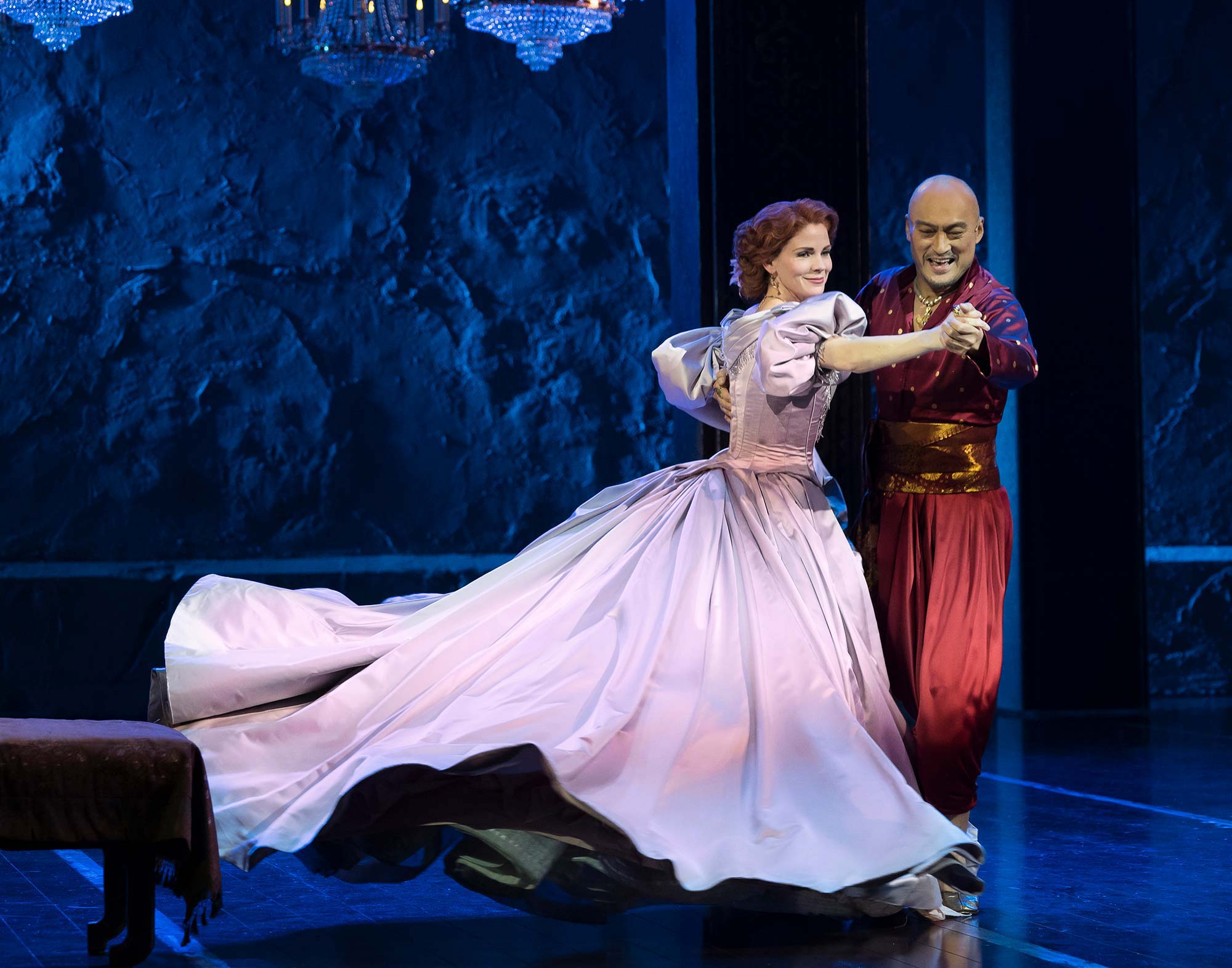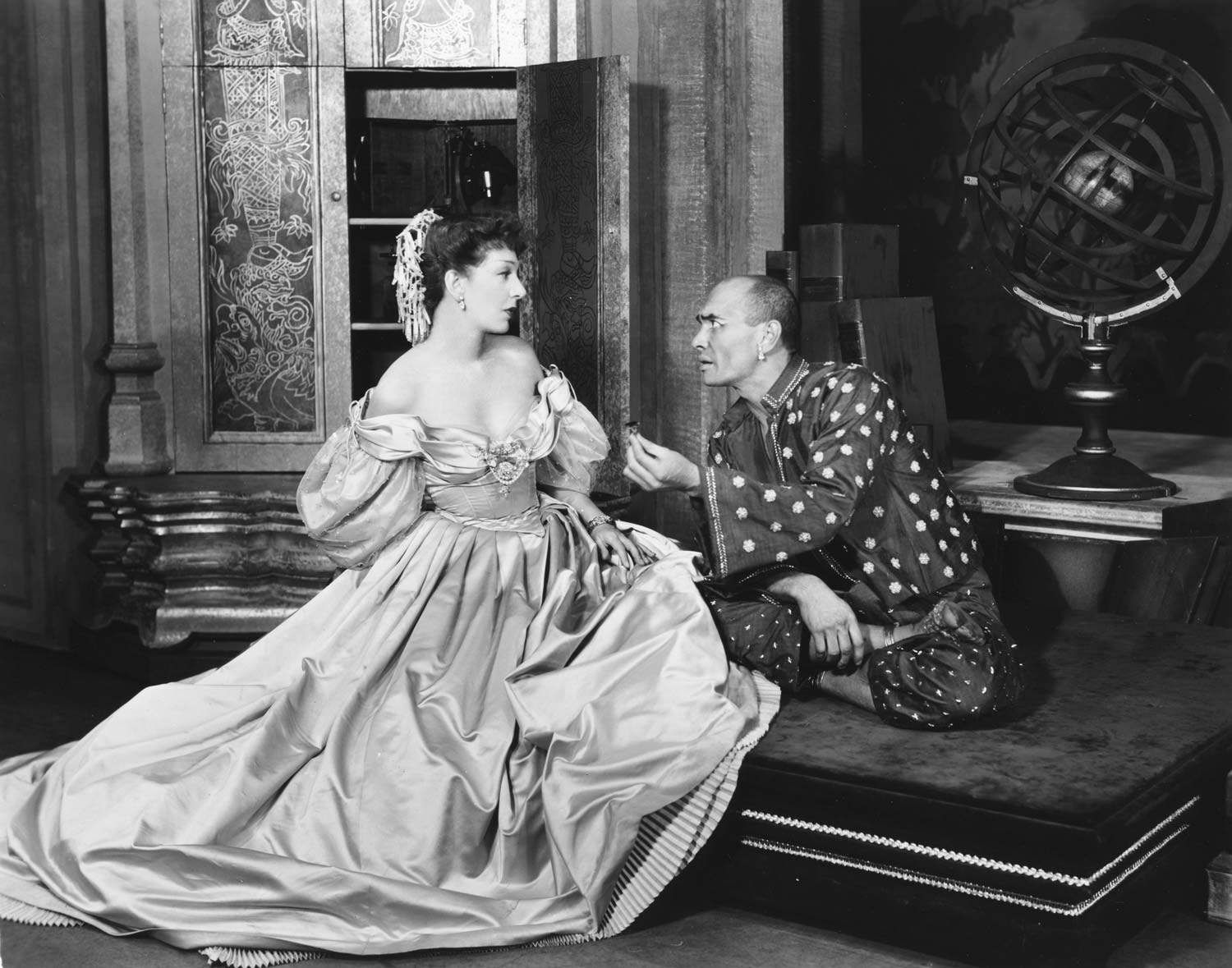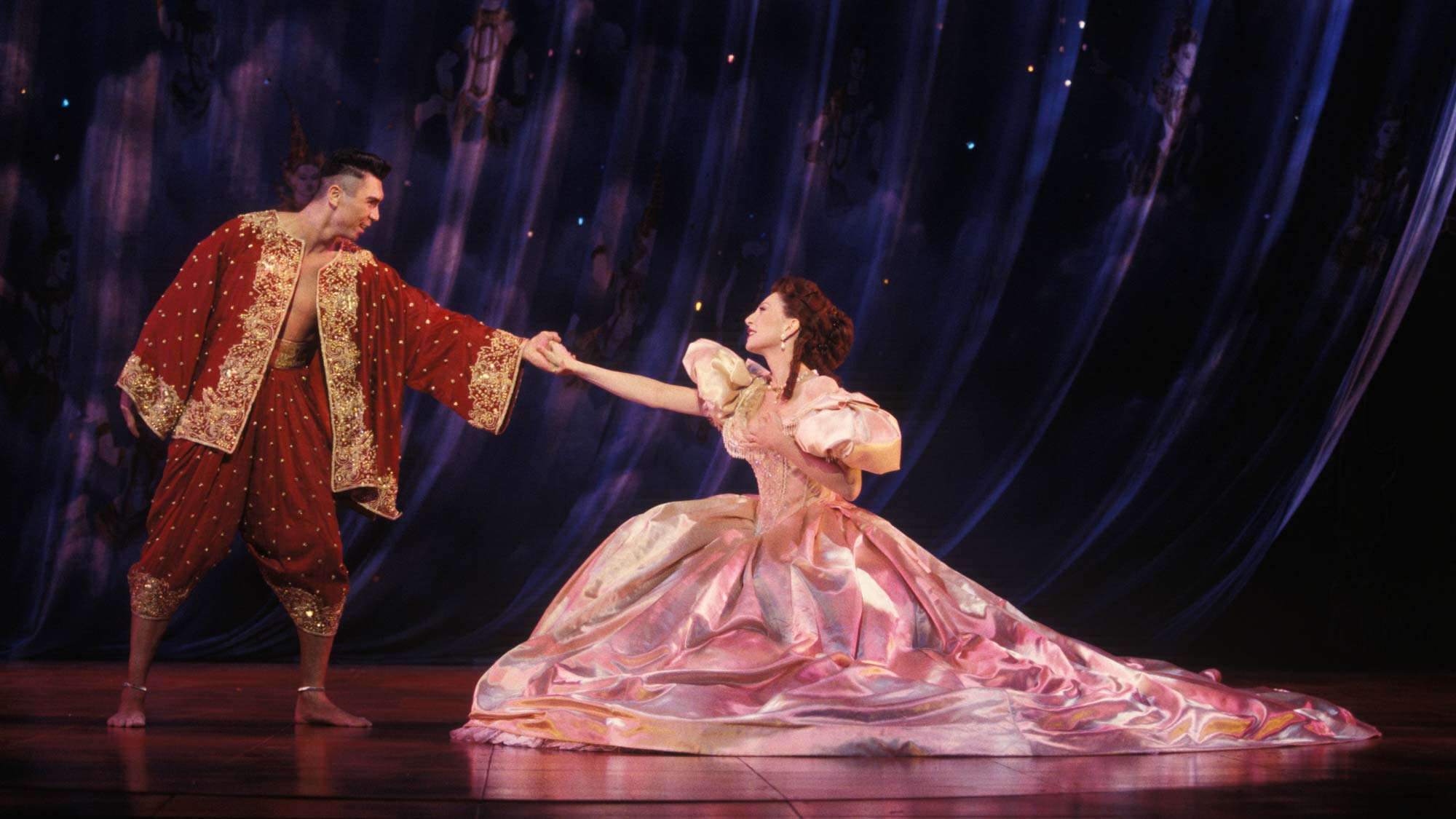The King and I Synopsis
ACT ONE
In 1862, Welsh-born widow Anna Leonowens and her young son Louis arrive by ship in Bangkok, Siam (now known as Thailand), where she has been engaged by King Mongkut to be schoolmistress to the royal children. The crowded port and the approach of the imposing Kralahome (Prime Minister) frighten Louis, but Anna helps him overcome his fears (“I Whistle A Happy Tune”).
In the throne room, with his many wives in attendance, the King of Siam welcomes Lun Tha, a Burmese scholar sent to study the design of Buddhist temples. Lun Tha presents the King with a gift: the beautiful, independent-minded young Tuptim, who speaks and reads English. She has been sent to join the King’s wives, all of whom live in the royal palace. Though she is promised to the King, Tuptim is in love with Lun Tha (“My Lord and Master”).
After being detained in the palace by the Kralahome, Anna finally meets the King. She reminds him of his promise to provide her with a house of her own. The King denies any memory of such an agreement, frustrating the strong-willed Anna.
The King introduces Anna to his head wife, Lady Thiang, who also speaks English. Tuptim asks Anna if she has any books in English which she may read, in particular Uncle Tom’s Cabin by Harriet Beecher Stowe, a novel about the evils of slavery in America. The wives are most curious about Anna’s Western clothing and background. Anna talks of her son and her love for her late husband, Tom (“Hello, Young Lovers”).
The children of the king’s most favored wives, including the heir to the throne, Prince Chulalongkorn, greet Anna (“The March of the Siamese Children”), who is charmed and agrees to begin teaching them, despite the King’s declaration that she must live in the palace.
The King, troubled by the encroachment of Western imperialism on neighboring countries, fears that Siam will be overtaken. He begins to question his traditional thinking (“A Puzzlement”).
A year later, Anna continues to teach (“The Royal Bangkok Academy”); the children and their mothers have impressed and delighted her (“Getting to Know You”). During a geography lesson, the children are reluctant to believe some of Anna’s new ideas. The King enters and vehemently defends Anna’s teachings. Anna takes the opportunity to remind the King about his promise to give her a house of her own. They quarrel, as do Louis and Chulalongkorn, and Anna decides to leave Siam.
Anna’s impending departure greatly upsets Tuptim and Lun Tha, who have been meeting furtively, with Anna as a chaperone (“We Kiss in a Shadow”). Lady Thiang secretly observes their rendezvous.
While Louis packs to leave, he and Chulalongkorn muse about their lack of understanding of the adults’ behavior (“A Puzzlement” Reprise). Later that night, Anna vents about the King’s stubbornness and the subservience he expects from his subjects (“Shall I Tell You What I Think of You?”).
Lady Thiang asks Anna to help the King; he is troubled by the approaching visit of British emissaries who view him as a barbarian. He needs Anna’s advice, but tradition and pride forbid him to ask for it. Anna is reluctant to help the King, but Lady Thiang convinces her to go (“Something Wonderful”).
The King, with Anna’s shrewdly worded help, decides to entertain the British dignitaries with a European-style dinner and dance, as well as a theatrical presentation of a play written by Tuptim, inspired by Uncle Tom’s Cabin. When the British arrive earlier than expected, the King calls upon everyone to quickly ready themselves. In a prayer to Buddha, the King resolves to give Anna the house she has long requested.
ACT TWO
The wives prepare to wear the uncomfortable European dresses and shoes Anna has instructed them to create for the dinner and performance (“Western People Funny”).
During the dinner, Tuptim sneaks away to meet Lun Tha, who reveals that he has been ordered to return to Burma immediately. They plan to run away together after Tuptim’s performance (“I Have Dreamed”).
In the theater pavilion, Tuptim and the royal dancers and singers present a Siamese version of Harriet Beecher Stowe’s book (“The Small House of Uncle Thomas”). During the presentation, an emboldened Tuptim confronts the King about slavery, but he quickly puts her back in her place. Afterwards, she disappears to meet Lun Tha.
Aside from the outburst from Tuptim, the King and Anna revel in the success of the evening. The British no longer view the King as a barbarian. Anna and the King begin to share their thoughts about relationships between men and women (“Song of the King”). The King expresses a curiosity in Western-style dancing and Anna and the King dance an exuberant polka together (“Shall We Dance?”).
The Kralahome interrupts with news that Tuptim has been found. She is brought in and the King prepares to whip her. Anna, begging him not to punish her this way, calls the King a barbarian. Unable to proceed, the King exits. When Lun Tha is found dead, Anna is devastated and vows to leave Siam.
Over the next few months, the King’s health begins to decline. As Anna and Louis prepare to leave, Lady Thiang brings Anna a letter from the King, who is close to death.
Anna arrives in the King’s study, where the wives, children and priests are holding vigil over the dying King. The King asks Anna to teach the children to be brave and Anna decides to stay (“I Whistle A Happy Tune” Reprise). As the King dies, Prince Chulalongkorn proclaims a new vision for Siam, inspired by Anna’s teachings. The Kralahome, Lady Thiang and Anna kneel by the great King’s side, paying their last respects (“Finale Ultimo”).



